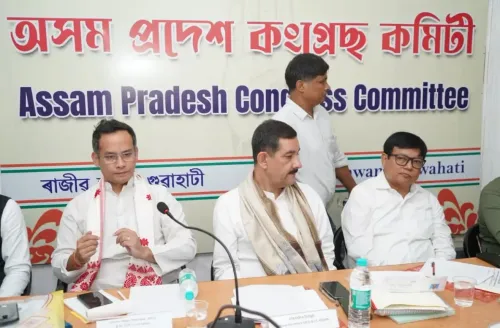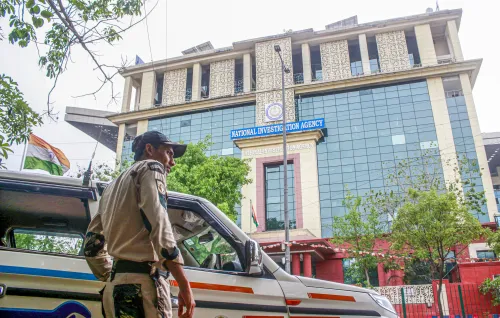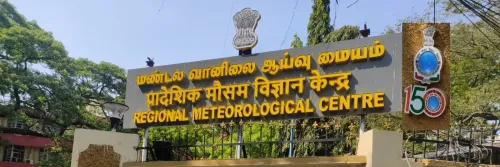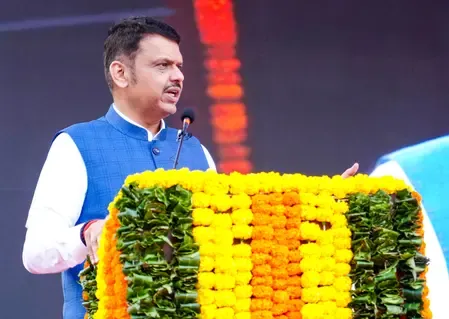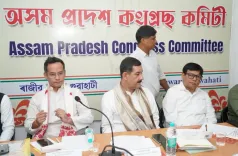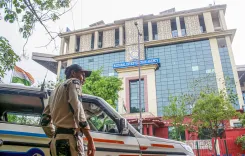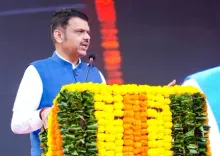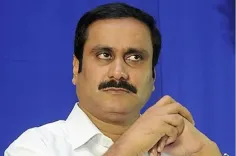PM Modi Critiques Congress' Royal Family During Emergency
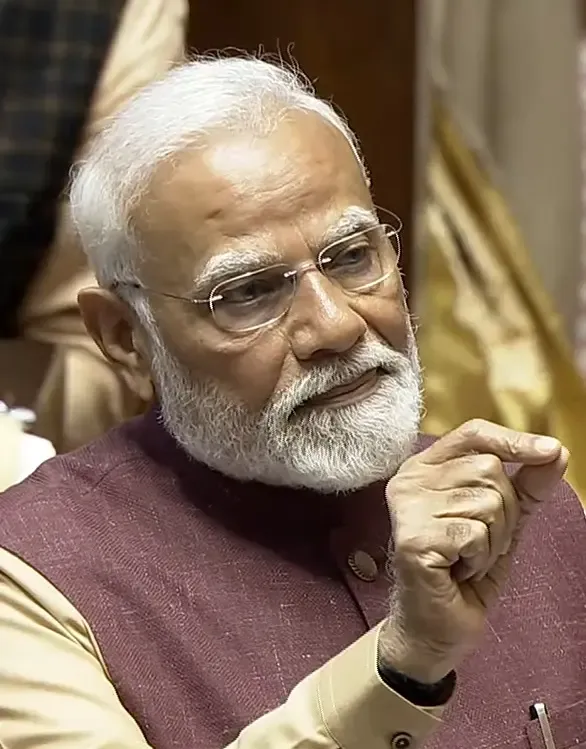
Synopsis
Key Takeaways
- Emergency was a tactic to indulge Congress' arrogance.
- Freedom of speech faced severe restrictions during this period.
- Middle class plays a crucial role in national growth.
- PM Awas Yojana has significantly aided shelterless individuals.
- Real Estate laws are in place to protect middle-class investments.
New Delhi, Feb 6 (NationPress) Describing the 'Emergency' as a tactic to indulge the arrogance of the Congress' royal family, Prime Minister Narendra Modi on Thursday recounted the assaults on freedom of speech and the imposition of 'Emergency', along with the oppressive measures taken against actors, singers, poets, and lyricists who did not support the government during those grim times.
While responding in the Rajya Sabha to the Motion of Thanks on the President’s Address, PM Modi emphasized how the Congress government during the 'Emergency' targeted singer Kishore Kumar and actors Dev Anand and Balraj Sahni for not aligning with it during that troubling period.
He also criticized the Congress administration under the first Prime Minister Jawaharlal Nehru for enforcing limitations on press freedom while claiming to be a democrat.
Pointing out how during the 'Emergency', MPs like George Fernandes were handcuffed and shackled, PM Modi stated that the Congress government effectively turned the entire country into a prison to cater to the arrogance of its royal family.
To lighten the mood in the House, the PM recited a few verses. He remarked, “Tamasha karne walon ka kya khabar, humney kitne tufano to par kar diya jalaya hai,” (Those involved in gimmickry don’t realize the sacrifices we have made to light up the lamp), in a poetic response to Leader of Opposition in Rajya Sabha Mallikarjun Kharge’s newfound inclination towards poetic debates.
Recalling the despair during the 'Emergency', he quoted poet Neeraj’s lines, “Hai bahut andhiara, ab suraj nikalna chahiye, jis tarah se bhi ho, yeh mausam badalja chahiye.” (The sun must rise to end the darkness; the weather should change for the better).
He further recited another couplet by Neeraj: “Mere desh udaas na ho, phir deep jalega, timir dhalega...” (A lamp will one day be lit to dispel the darkness; so my dear country, do not feel disheartened).
Identifying the middle class and new-middle class as the engine behind the nation’s growth, PM Modi underscored that the income tax exemption limit was increased in the Union Budget 2025-26 to Rs 12 lakh, contrasting it with the mere Rs 1 lakh exemption limit in 2013.
He also showcased the PM Awas Yojana, which has provided four crore homes to those without shelter, including one crore in urban locales.
PM Modi discussed the Real Estate Regulatory Act and the legislation aimed at assisting the middle class whose investments are stuck in troubled housing projects.
Moreover, he spoke of initiatives fostering the country as a start-up hub and tourism destination, both of which support the middle class eager to advance with the nation.
Reiterating his vision of transforming the nation into Viksit Bharat, he emphasized that the youth of the nation are the driving force behind this goal and elaborated on his government’s commitment to enhancing infrastructure in a timely manner.
To illustrate this, he referenced Uttar Pradesh’s Saryu Nehar project, which was approved in 1972 but realized under his administration.
In addition to promoting sports, PM Modi highlighted initiatives for youth by introducing the mother tongue in competitive exams and establishing Sainik Schools for girls.

